On September 10, 2018, Polotsk State University held the International Forum “University of Bologna Type: Internal Quality Assurance System”. The participants shared their international and university experience of introduction of quality assurance system in higher educational establishments. Svetlana Vegera, Doctor of Economic Sciences, Associate professor, First pro-rector of Polotsk State University, was the moderator of the forum. The Deans, Heads of the Departments, representatives of faculty student boards, lecturers and students took part in the forum. The participants of the forum and experts exchanged their thoughts and opinions during the panel discussion. A lively dispute provoked by the students, showed a great interest of young people in the topic of the forum.
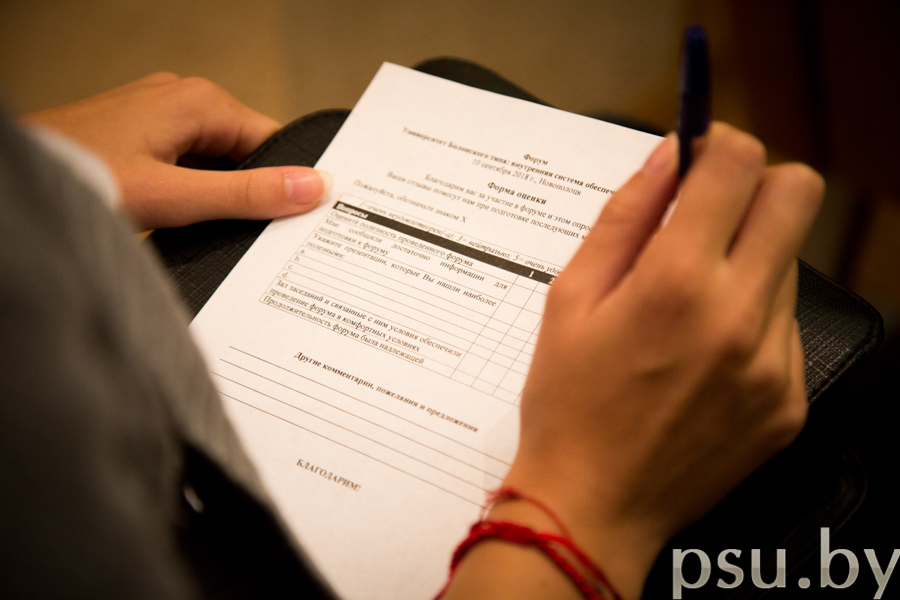
Sergey Peshkun, Head of the International Office at PSU, delivered a report on the internal quality assurance system. He spoke about the strategic development of Polotsk State University for the introduction of an internal quality assurance system and defined the prospects of introducing the system and the transition to a quality culture. S. Peshkun emphasized the fact that the quality of education is the driving force and tool in the process that allows competing with educational institutions in the conditions of the massification of higher education.
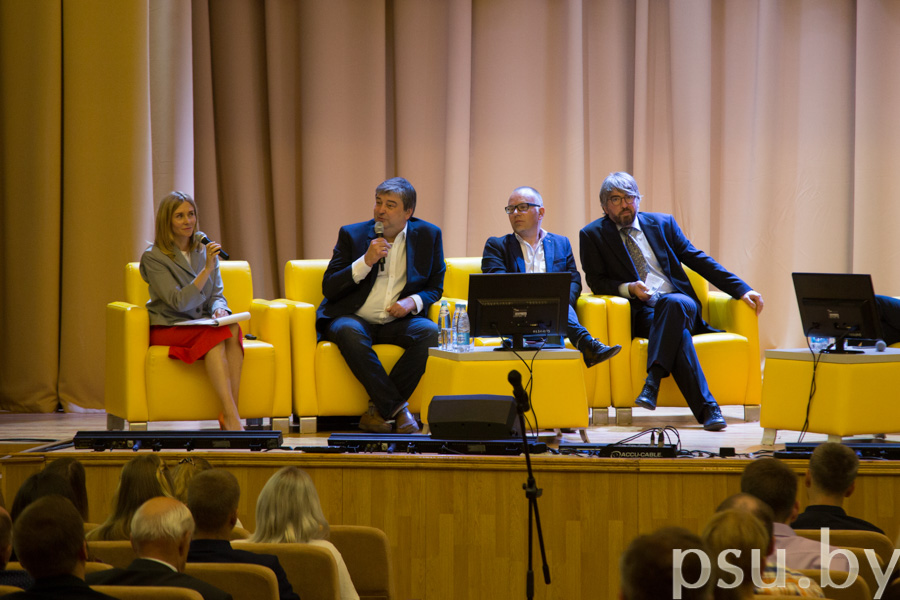
Then, Markus Steinmeier, professor, Doctor of Philology at the Faculty of Humanities at the Institute of German and Literary Studies at the University of Duisburg-Essen, expert in the sphere of internationalization of higher education delivered a report. Later, Christian Ganzoier, professor, Doctor of Philology, Head of the Education Department of Project Management Agency of Education and Science of Germany, made a presentation of his report.
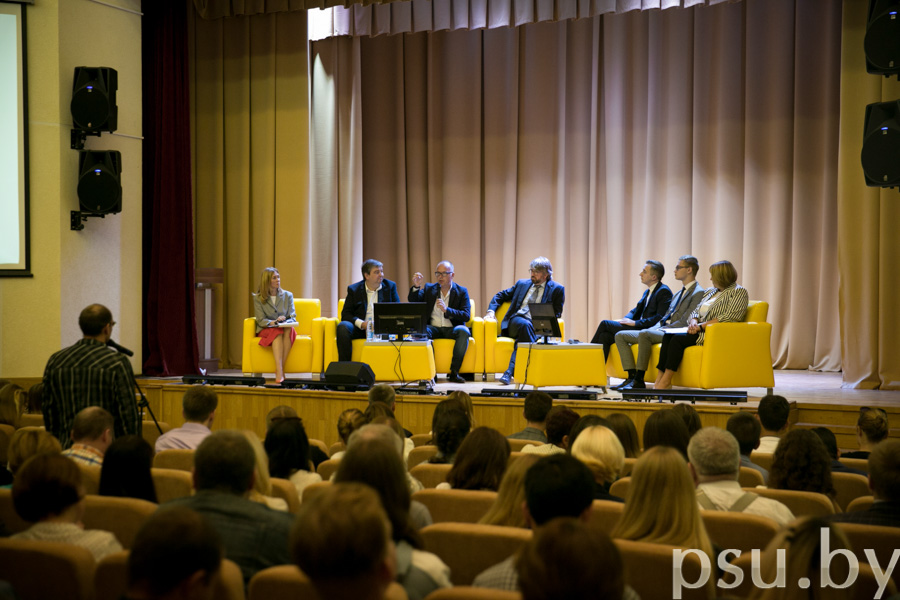
The experts disclosed two issues in their speeches: for what and why a quality assurance system is needed. Based on their experience, the experts suggested 10 steps to introduce the system. The professors noted that the introduction of a quality assurance system is an endless process, because there are many factors that affect the quality of education. Moreover, the guests stressed that the quality assurance system is not only the educational process control but also the creation of conditions and environment that will make high quality of teaching and learning possible.
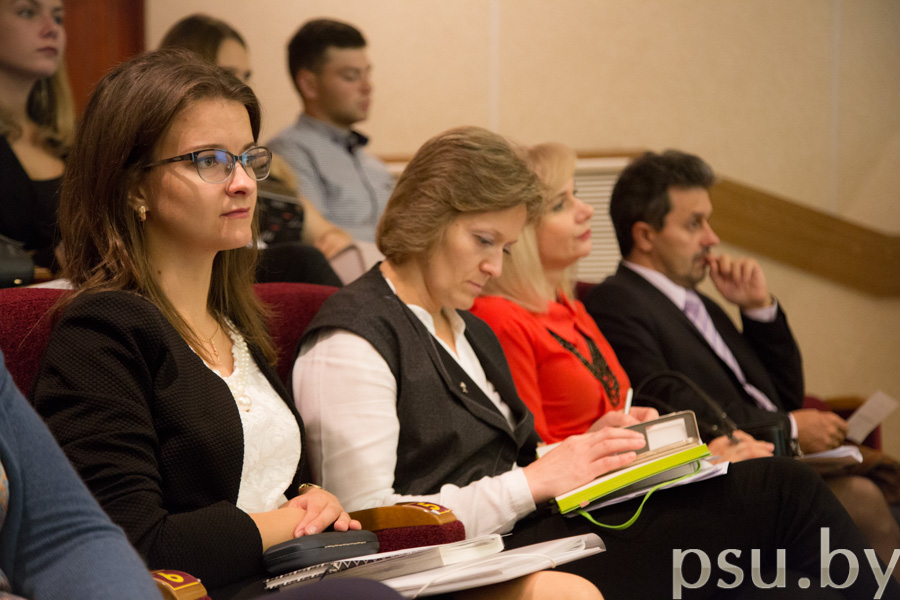
Further, the experts from Polotsk State University delivered their reports. The reports of a student, a lecturer and a representative of the university administration were presented to provide a valuable insight.
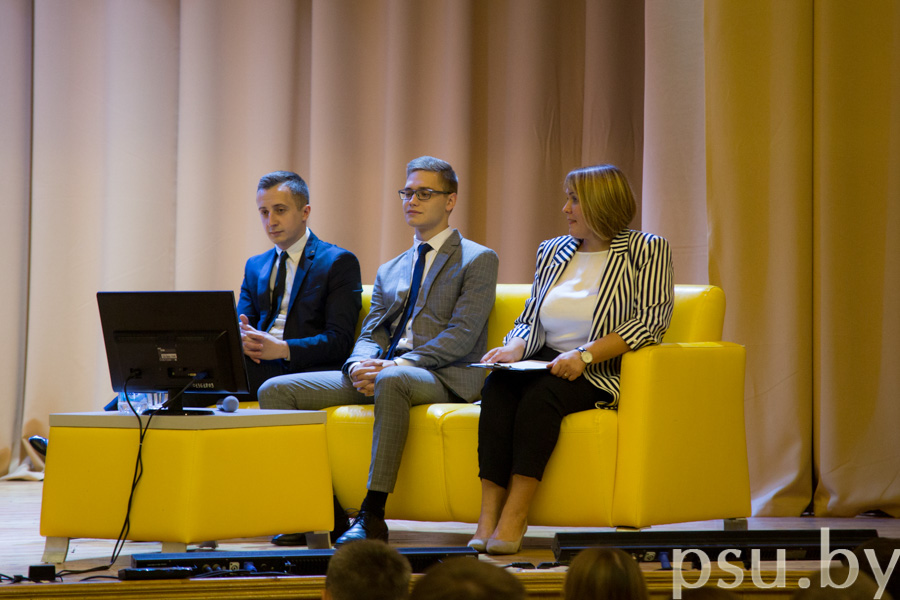
Roman Volkov, a 4th year student at the Faculty of Law at PSU, who is a member of a project group at Raoul Wallenberg Institute of Human Rights and Humanitarian Law (Lund, Sweden) within the framework of “Academic cooperation on human rights in Belarus for 2015-2019”. In his report, R. Volkov pointed out the importance of the student’s role in assessing and improving the quality of education, proposed the forms of student’s participation in the assessment and improvement of the quality of education: analysis of various tools and their efficiency by questioning the students about the satisfaction with the quality of education. The other side of this proposal was the choice of criteria for assessing the satisfaction.
Pavel Solovyov, Senior Lecturer at the Department of Theory and History of State and Law at PSU, in his teaching methodology was oriented on the student’s opinion. P. Solovyov dwelled upon the practice of using social networks for assessing the education quality by students, about the tools of collection, processing and usage of the students’ opinions on the issues of the improvement of the training course program.
Nadezhda Boreiko, PhD in Economics, Associate professor, Head of the Department of Studies, a member of the project group FORSTERC “Development of Competences in Higher Education of the Republic of Belarus” (ERASMUS+), talked about the mechanism for developing the indicators for determination of the results of education on the basis of competences as one of the tasks of internal Quality Assurance System. The result of this was the formation of questionnaires for three groups of respondents: graduates, teachers and employers.
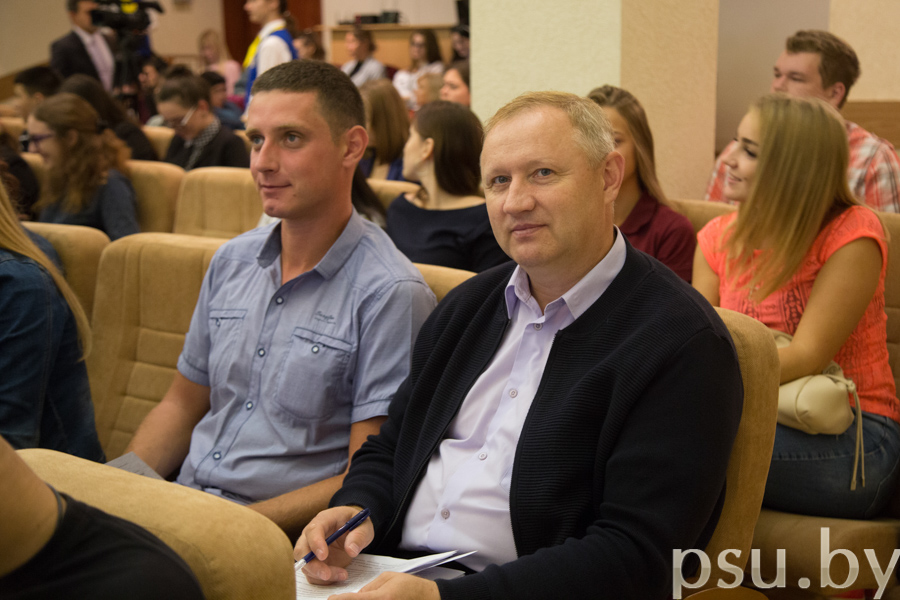
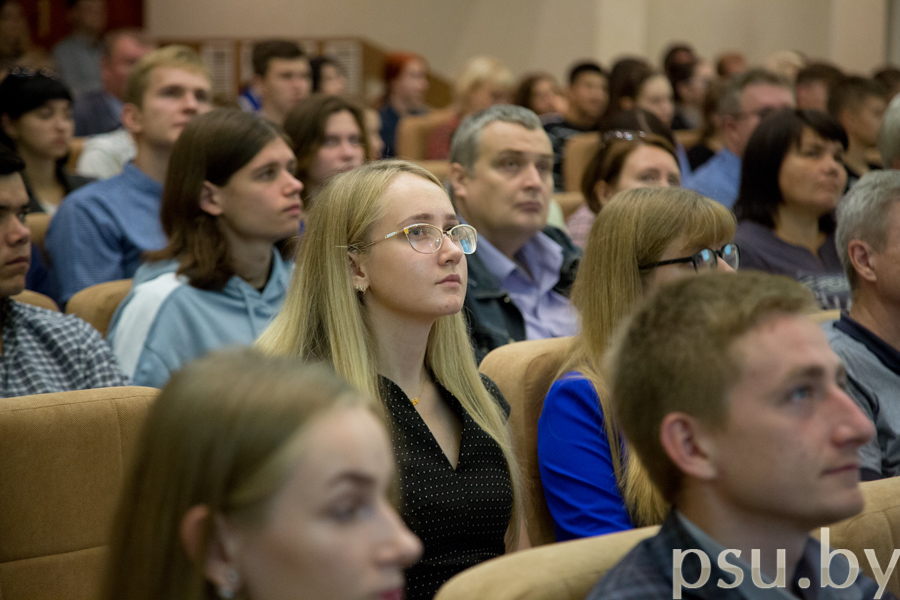
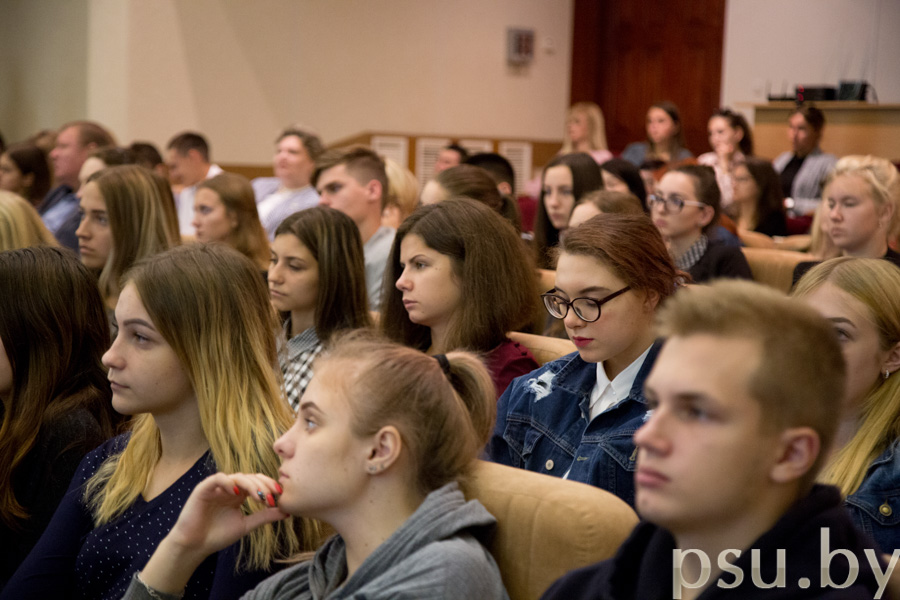
The forum provoked a cordial response from the audience. It means that the topic is relevant and the reviews of the participants are the proof:
Alexander Dudan, Dean at the Departmnet of Mechanics and Technology: “The forum and, in particular, the reports of the European professors from Germany were very useful for all the participants: the students, the lecturers and the university administration. I suppose that it is difficult for us to use the experience they have in this sphere, because they have a different system of education, they haven’t got such a Ministry of Education that we have, they are free to determine the quality of education themselves, the attestation is carried out by independent experts from the European Union. Nevertheless, we can implement some basic principles that concern precisely the improvement of education quality in the framework of the Bologna process. That is why both the reports and the questions were very useful. I consider that this will allow us to master the areas of activity that the Bologna Process requires.”
Sergey Pleskach, 17-TNG: “This forum, as I see it, is a good way to discuss the relevant issues, to learn about the proposals and critics. A very important topic, the topic of improving the quality of education, was touched upon the forum. Moreover, various solutions were suggested for this. I learnt the opinions on one situation from different sides: from the representatives of different generations, nationalities and specialties. A big advantage of this conference is freedom of speech, each listener could ask any question (not prepared in advance) to the representatives of education. There were even rather provocative questions, but we heard honest, objective answers, which pleased us very much. I don’t regret spending time on this event, it made my day. I would be glad if such forums were held as often as possible.”
Alexander Kozlov, 17-IS TG (IS): “If to talk about the format of panel discussion, it always presupposes a dialogue and an exchange of views. This is the main feature of today’s event and this is fantastic. I was pleased that our guests from Germany, university staff and students are of the same opinion that internal quality system is important in the context of the Bologna process and mobility between European universities. It should be noted, however, that there are weaknesses in the objective assessment. Nevertheless, I am sure that if the opinions of the parties are taken into account, we will get an excellent result. And this is what I wish for the further realization of the project.”
Vladislav Korsak, 17-TNG: “I came to the forum dedicated to an important topic: “The Improvement of the Education Quality”. I was pleased with the preparation to the event. Polotsk State University invited the guests from Germany, who shared their experience in the improving of education quality in the institutions of their country.
It was great that there were representatives of different ages. The lecturers, students and university administration had a possibility to communicate on equal footing. The students were not afraid to express their opinion and the lecturers understood what did they do wrong or wright. Was this conference useful? Without any doubt, yes, it was. I learnt a lot of useful information. Moreover, this event motivated me, to some extent, to participate in the university life: to do something to improve both the university and myself.”
Irina Shipko
Photos and video provided by Polina Kosarevskaya, Vladimir Krivoborodenko